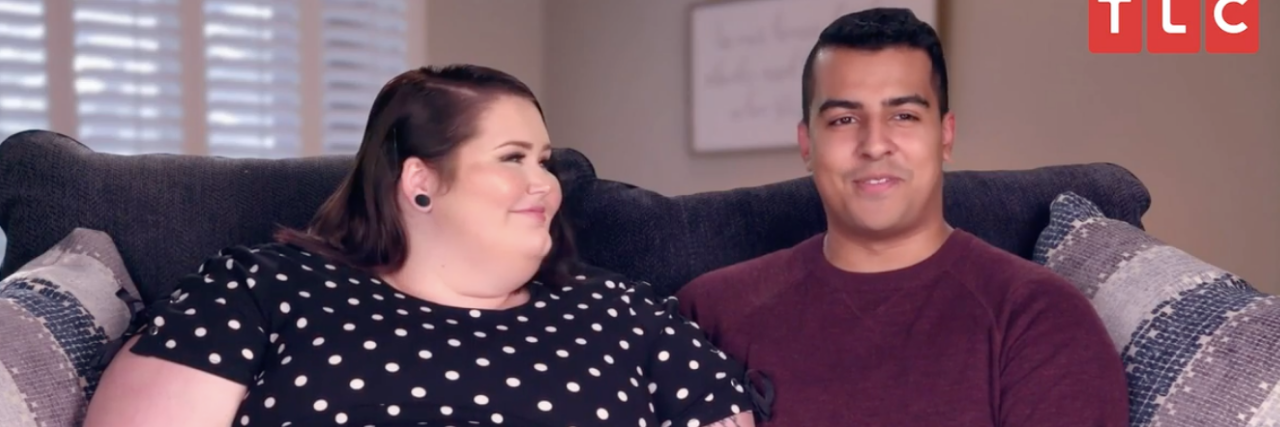Fatphobia and weight stigma are everywhere we turn, yet not everyone sees it or even believes it’s real. Well, let me and most other fat people tell you: It is real. So when I saw the trailer for TLC’s new show, “Hot and Heavy,” I was unfortunately not surprised, but I was angry. The show follows three fat women who are dating or married to men who aren’t fat… and that’s it. That’s the whole show. According to People, the show will “explore the trials and tribulations that come with being in a mixed-weight relationship.”
For these couples, love knows no size. See the highs and lows of their mixed-weight relationships on the series premiere of #HotandHeavy Tuesday, January 7 at 10/9c. pic.twitter.com/QAFh8AILj7
— TLC Network (@TLC) December 10, 2019
Luckily this time, I was not alone in my outrage. Since the trailer dropped, there has been backlash pointing out how problematic it is. If you’ve seen the trailer or plan on watching the show, here are some things to remember:
1. It is not newsworthy for a fat person to be in a relationship, no matter what their partner looks like.
The fact that there is an entire show about the premise of fat people being in relationships with — gasp — thin people is extremely fatphobic. Fat people are in relationships with all different types of people. Additionally, the fact that all the couples are fat women dating straight size men speaks to the heteronormativity and sexism that exists in our culture. The main focus is on the women’s appearance and what the men are attracted to — the women aren’t asked to defend or explain their tastes or preferences.
If you are a fat person reading this, please know that while fatphobia is something we do face, you are lovable. It is not a surprising miracle for someone to find you attractive — and it doesn’t have to be someone who fetishizes fatness. There are a couple of comments in the trailer that make me wonder if the men are doing that. For example, one of the women says, “You just want me to stay fat,” and one of the men says, “I wouldn’t mind if she were bigger,” when speaking about their partners. This is concerning because that places a focus on your partner’s weight in a way that comes off as trying to control something that can’t fully be controlled. Which brings me to my next point:
2. Our bodies and weights naturally change and fluctuate.
The idea of a “mixed-weight” relationship has issues on various levels, but one that sticks out to me is it acts like weight is a stagnant thing. You could begin dating someone at one size, and 10 years later their size may be different. And not only is that OK, but it’s natural. Our bodies change and grow and shrink due to a number of factors. For example, in the mental health and disability community, weight gain can be common due to medications, symptoms or behaviors. Maybe the size you are now is not the size you were when you met your partner. Maybe your body is in the process of changing right now and you’re worried about what your partner or others will think. Those feelings are totally normal in the diet culture we live in. You can hear the women in the show talk about how they were bullied and told they couldn’t be loved. But the truth is that your weight should not be the thing that makes or breaks a relationship — because it’s not what does or does not make you a good partner.
3. The framing of the show is harmful.
According to the trailer, the show does not seem to be a story about how pervasive fatphobia and weight stigma are. Instead, the focus is on how the men “defend the honor of their respective women to their skeptical friends, family and the public.” You shouldn’t have to “defend” your choice of a partner, especially when it comes to something related to appearance or identity. And if anyone is saying fatphobic things to you about your partner, you should educate them on fatphobia and weight stigma, not “defend” your partner. Your partner doesn’t need you to prove they are worthy, they need you to step up and tell people why fatphobia is harmful. That is what matters in the long run — and that’s what the problem is at its core.

